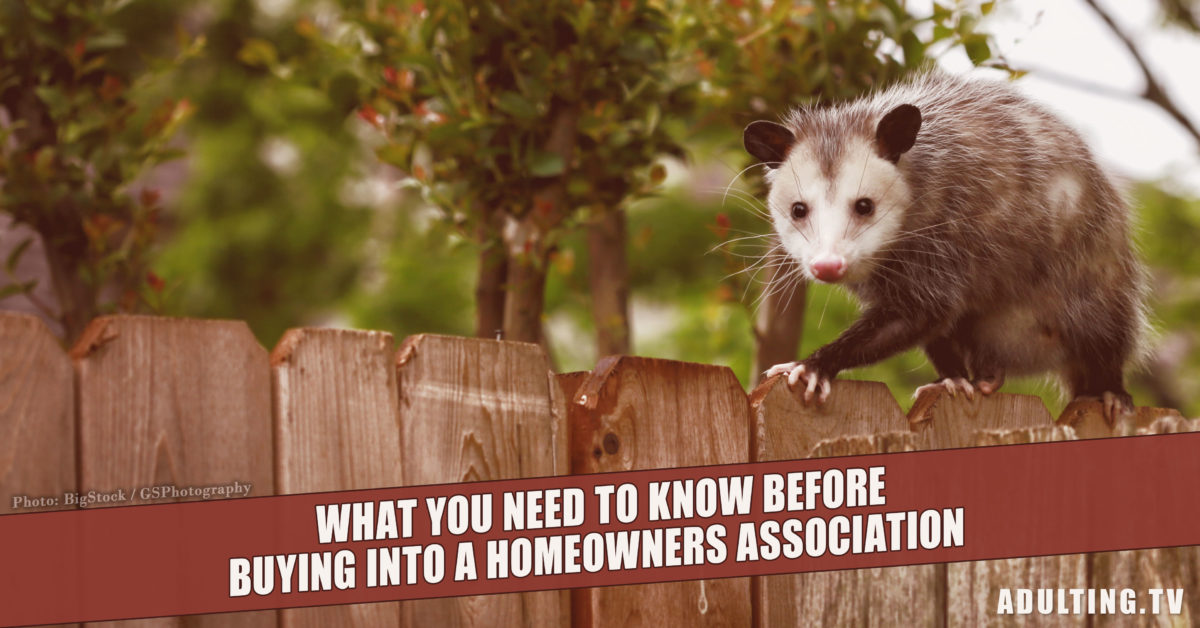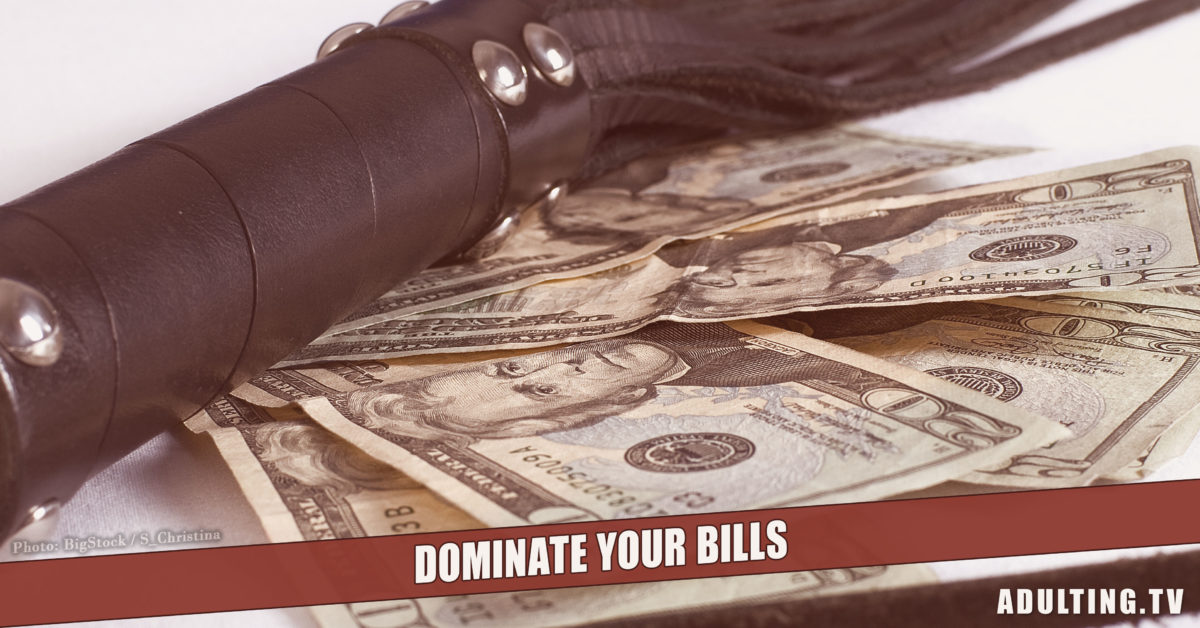If you’re buying your first home or you’re not a handy person (or you simply don’t want to be handy), buying a condo in a homeowners association (HOA) might seem ideal.
Maybe the house you want to buy is in an HOA, and it’ll take care of the garbage and snow removal for you.
Who doesn’t want to take those items off their to-do lists?
Before you get too excited, it’s important to know that as nice as HOAs are, they can be quite controlling — and costly to you as a homeowner. They can be especially costly for condominiums or multiple dwelling units in HOAs.
Here’s what you should know before buying into a homeowners association:
The HOA should have a reserve study and a reserve balance.
Just as you should have an emergency savings account, so should an HOA. This is typically called the reserve balance, and it should be cash held in an account to be used ongoing maintenance of your HOA. It also acts as a buffer should surprise accidents, like a blown boiler or a roof leak, happen.
How much money should an HOA have in reserve? There are many variables to consider, such as operating costs, maintenance expenses, the number of homes or units in the homeowners association, and the square footage (and types) of common elements.
Therefore, it’s advised that HOAs pay for reserve studies. Reserve studies are performed by professionals to assess how much it costs to maintain the HOA. The results can help the HOA figure out how much it should have in its reserve account.
Before you buy into an HOA, ask to see the financial documents, ask for the reserve balance, and ask to see a copy of the reserve study. Your review of these documents should tell you how well the HOA is being managed and how financially solvent the HOA is.
If the HOA isn’t managed well or isn’t solvent, surprise accidents could mean a large expense to directly to you.
Read the HOA’s governing documents, including its rules and regulation.
Every HOA should have its own declarations and bylaws, as well as rules and regulations. These documents spell out how the homeowners association should manage itself, who’s responsible for what, and what’s permitted (and not permitted).
The declarations and bylaws were drafted by attorneys and HOA members at the inception of the homeowners association. Making changes to the declarations and bylaws typically requires majority approval by the HOA members or homeowners. Changes to some elements may require more than 51% approval. It’s the responsibility of the HOA board to manage the HOA to the declarations and bylaws.
The rules and regulations are typically drafted and can be changed by the HOA board members. Most HOAs, however, solicit input to draft rules and regulations from a committee of HOA board members and homeowners to eliminate the appearance of being unfair.
That said, many of the day-to-day problems with homeowners or within an HOA come from a lack of understanding regarding the HOA’s rules and regulations. From knowing how to replace a lost key to whether the HOA permits animals, different processes and requirements are typically spelled out in the rules and regulations. Violators of rules and regulations are usually subject to fines by the board.
Before buying into an HOA, ask for copies of the declarations, bylaws, and rules and regulations to make sure you can live within the pre-established rules of the HOA. Some rules could have expensive financial consequences for you.
Condo insurance is special.
If you live in a condo building or multi-dwelling unit, know that everything you understand about insurance and liability insurance does not apply to your condo.
For example, you might assume that if the neighbor above has a leak in their sink that goes through their floor, your ceiling, and into your condo, they would be liable to cover your expenses. If I hit your car with my car, I’d be responsible for replacing or fixing your car. Right?
That logic doesn’t apply here. The neighbor above you who “caused the leak” is responsible for repairing the damage done to their unit. You, however, are responsible for damage done to your unit. More accurately, your homeowners insurance is responsible for making you whole again, not your neighbor’s insurance.
It may not make sense, but that’s the way condominium insurance works. Before you buy into an HOA, especially a condominium, fully understand your liability, the HOA’s liability, and your neighbors’ liability. Talk with an attorney who specializes in HOA and condominium law, and talk with your insurance agent to understand what and how you’re covered.
You have limited rights and recourse in an HOA.
HOA laws give a lot of leeway to HOAs and their boards. You have limited recourse if you feel you’ve been wronged or if you don’t like what your homeowners association is doing.
There’s no value in suing your HOA, either. HOA board members are covered by the HOA’s insurance and the HOA insurance is paid for by your HOA dues. So, in a circuitous way, suing your HOA is suing yourself. It could cost you money directly, and it could cost you the support of your fellow homeowners.
The only way to really effect change in an HOA is to join the board (usually by being elected). If you don’t have the time or the interest in being on your HOA’s board, then you’re subject to the decisions of those who do and are. Such decisions can be as minor as permitting welcome mats at front doors to implementing multimillion-dollar “improvement” projects paid for by you.
If you’re not comfortable living with the decisions of a small group of people and don’t have the time or interest in being on the HOA’s board, perhaps buying into an HOA is not the right call for you.
You still have homeowner responsibilities.
Too often, those who don’t want to spend money or donate the time to maintain HOAs move into one. Walls need to be painted and carpets need to be replaced in common areas. The grounds need to be kept. Someone must skim the pool. When a homeowner leaves trash in the elevator, someone has to clean it up.
The only way these things happen is if someone donates their time or you pay for it. If someone, including you, isn’t interested in donating your time, then be prepared to pay someone to do it.
Many people who move into HOAs assume everything will be done for them. That’s true when they pay for that service. If you don’t pay for it, don’t expect it. You’d be responsible for these expenses if you owned a single-family home. You’re still responsible for them in a condo or HOA.
These are some aspects of living with a homeowners association in a condo that many don’t know. Not knowing them makes it harder for you and your neighbors. The more aware you are, the more prepared you can be if you buy into an HOA.






